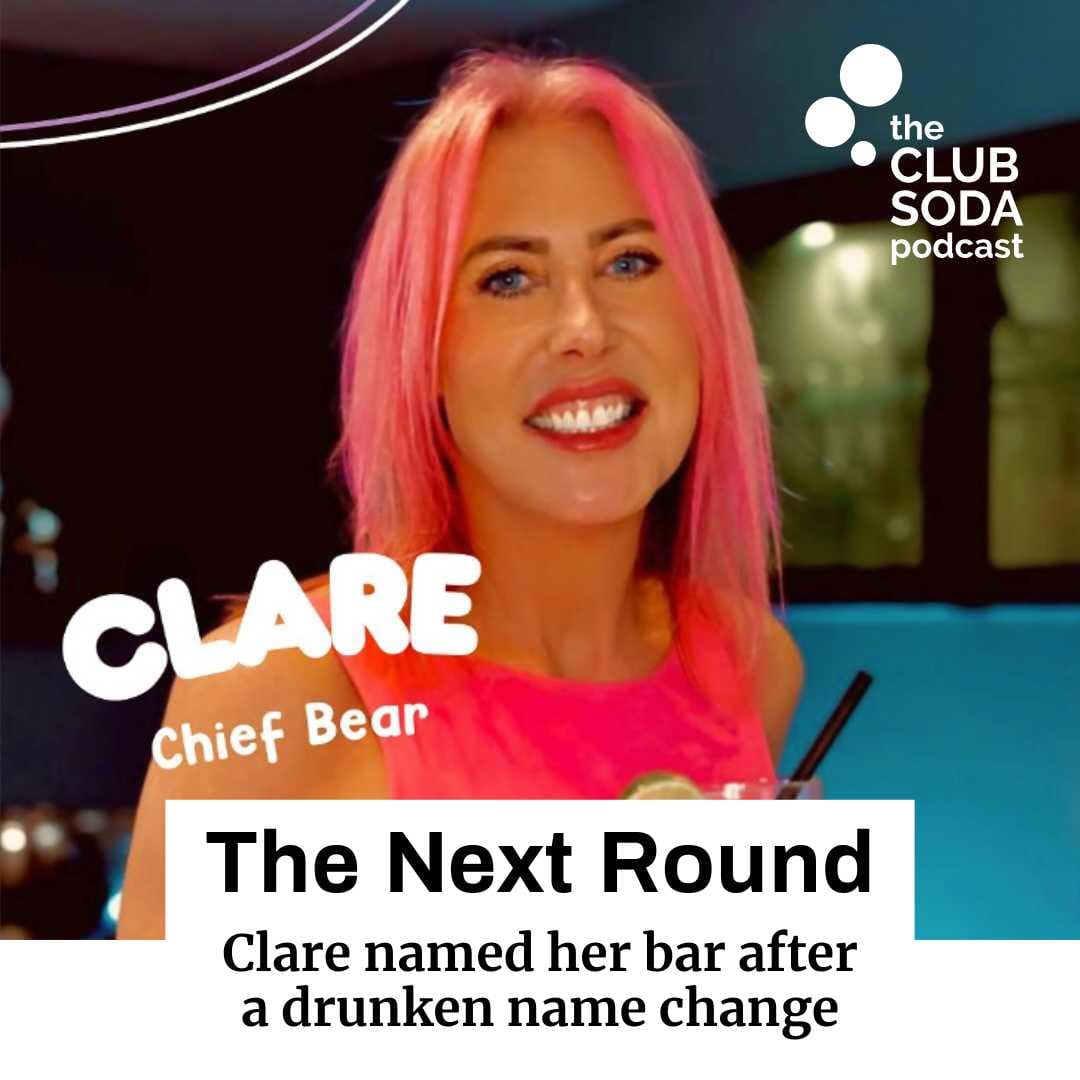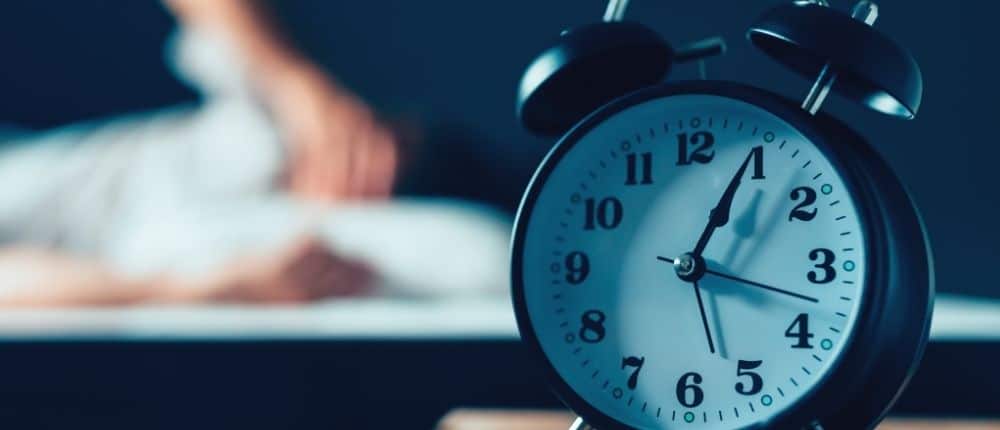
This website uses cookies to improve your experience. We'll assume you're ok with this, but you can opt-out if you wish. Read More
The Next Round: What happens after you change your drinking?

Recently, we got to talking about sleep, and Laura shared her personal experiences of quitting drinking eight years ago. Unlike others who struggle to get to sleep when they go alcohol-free, when she quit drinking, she found she was sleeping a lot.
Laura: I think this is always a really interesting discussion. People fall into one of two camps when they change their drinking: either they’re sleeping loads and they’re worried about how tired they are, or they can’t get to sleep.
We talk quite a bit about the people who can’t sleep because they’ve been so used to drinking to get to sleep. So they’re needing to make some adjustment. But I quit drinking and I was sleeping a lot. I was one of those people that fell into the feeling of “WOW, my sleep is just amazing all of a sudden.”
So what was happening before I gave up drinking?
I managed to fall into this really ‘great habit’… I never drank every day, I drank every other day, as I couldn’t drink on a hangover. So when I had my hangover, I knew I just had to get through this day and everything would be alright. And then tomorrow, I would quit drinking. I did that for eight, nine, ten years. I knew that once I’d got a good night’s sleep under my belt, I would feel better the following day and life could get back to normal.
On the days that I was drinking, I would go out and I would have some drinks in the pub. Then I would come back from the pub, and I would go to the local shop. I would get some ready-made gin and tonics, and then I’d go back home and get ready for bed. I’d sit in bed and I’d go “Oh, I deserve to treat myself a little bit more.” I’d put the TV on and open up one of the gin and tonics and sit in front of the telly. The gin and tonic would finish, but there’d still be some more program left, so I would open up another. Or, there would be some gin and tonic left and no more program, so I would start another program. And lo and behold, the next minute it would be two or three in the morning. Then I would wake up with not long before I had to get into work and rush around and get into work, probably stinking of alcohol.
It wasn’t just the alcohol that was affecting my sleep, but the fact is that I wasn’t going to sleep early enough. I wasn’t getting enough rest. I was continually tired. And that adds to the brain fog. That means that it’s not just the hangovers that affect you when you’re drinking, it’s the lack of sleep and all the cumulative effect of that.
When I gave up drinking, sleep suddenly became this amazing thing. Yes, I was tired. I felt tired at three in the afternoon. But instead of having something to drink – which of course we all do, when we’re tired, hungry, angry or lonely, we tend not to deal with the thing that’s wrong, we tend to go for a drink – I had to do something else. So I did this revolutionary thing called going for a nap. And often I didn’t sleep but I’d put my audiobook on and I would rest for a while. It was my body saying I needed to rest as it was recovering. It was learning some new patterns around sleeping. It was learning that I was no longer artificially propping myself up with alcohol and the sugars in alcohol in order to stay awake for the rest of the evening. I was giving myself some time and space, and actually, I loved it. I loved crawling into bed and, going under my duvet for a little while and giving myself some time. It was something I’d never done before because I was always rushing. And because I was always not really with it.
My sleep also improved. I started to be able to go to sleep at 11pm. I wasn’t keeping myself in the pub too late. I wasn’t going into the shop. In fact, after three months of giving up drinking, the shop manager asked me if I’d been ill because I had not been in the shop for so long!
I began to sleep really well. And if I think back at it now, it was brilliant. After three months that began to lift, and it’s a bit like my body had got some of the rest it needed to recover. It learnt new patterns. It had learned not to rely on getting a 5pm red wine pick-me-up. And instead, I’d have food and proper rest. And after three months, my energy came back with great abundance. But it was also more than that, and it’s still more than that.
I love going to bed and going to sleep. I still go to sleep thinking, “Oh, tomorrow’s a different day, I wonder what’s going to happen?” There’s some excitement.
I get up and feel rested.
But if you don’t, then there’s probably some other issues going on that you now have some space to deal with. If I had had sleeping issues before, I’d have never even been able to notice them, because alcohol would have affected it all.
I love sleep. I love snuggling up in bed. I love putting an audiobook on. I love having a hot water bottle, even when it’s far too warm outside to have one. And I love that sense of resting in myself.
Embrace the fact that you may be a bit more tired when you first change your drinking. And listen to that and go to sleep. Sit down, have a rest, go to bed for a short while, just have a lie-down. It doesn’t have to be a sleep. Begin to embrace your nighttime and your sleep time. And get into some new routines that that make you feel special. Then after three months, notice how that energy changes, and it will. Changing your drinking doesn’t always give you such an immediate benefit. It does take time. And by three months you’ve done all the hard work.
So don’t say to yourself, “I’m still tired all the time, so I better start drinking again, because it hasn’t made a difference.” Don’t do that! Know that after three months, or maybe it’s six months for you as it’s different for everybody, that there is more to come and you will begin to feel the benefits.
Just as drink over time has a cumulative negative impact on your body, not drinking has a cumulative effect on your body once you give up.
If alcohol is affecting your sleep, Club Soda’s online courses can help. Our longer courses, How to Drink Mindfully and How to Stop Drinking, encourage you to track your sleeping patterns so you can see changes over time.
This website uses cookies to improve your experience. We'll assume you're ok with this, but you can opt-out if you wish. Read More
| Name | Domain | Purpose | Expiry | Type |
|---|---|---|---|---|
| wpl_user_preference | joinclubsoda.com | WP GDPR Cookie Consent Preferences. | 1 year | HTTP |
| PHPSESSID | www.tickettailor.com | PHP generic session cookie. | 55 years | HTTP |
| AWSALB | www.tickettailor.com | Amazon Web Services Load Balancer cookie. | 7 days | HTTP |
| YSC | youtube.com | YouTube session cookie. | 55 years | HTTP |
| Name | Domain | Purpose | Expiry | Type |
|---|---|---|---|---|
| VISITOR_INFO1_LIVE | youtube.com | YouTube cookie. | 6 months | HTTP |
| Name | Domain | Purpose | Expiry | Type |
|---|---|---|---|---|
| _ga | joinclubsoda.com | Google Universal Analytics long-time unique user tracking identifier. | 2 years | HTTP |
| sbjs_migrations | joinclubsoda.com | Sourcebuster tracking cookie | 55 years | HTTP |
| sbjs_current_add | joinclubsoda.com | Sourcebuster tracking cookie | 55 years | HTTP |
| sbjs_first_add | joinclubsoda.com | Sourcebuster tracking cookie | 55 years | HTTP |
| sbjs_current | joinclubsoda.com | Sourcebuster tracking cookie | 55 years | HTTP |
| sbjs_first | joinclubsoda.com | Sourcebuster tracking cookie | 55 years | HTTP |
| sbjs_udata | joinclubsoda.com | Sourcebuster tracking cookie | 55 years | HTTP |
| sbjs_session | joinclubsoda.com | SourceBuster Tracking session | Session | HTTP |
| Name | Domain | Purpose | Expiry | Type |
|---|---|---|---|---|
| mailchimp_landing_site | joinclubsoda.com | Mailchimp functional cookie | 28 days | HTTP |
| __cf_bm | tickettailor.com | Generic CloudFlare functional cookie. | Session | HTTP |
| NID | google.com | Google unique id for preferences. | 6 months | HTTP |
| Name | Domain | Purpose | Expiry | Type |
|---|---|---|---|---|
| _ga_10XZMT03ZM | joinclubsoda.com | --- | 2 years | --- |
| AWSALBCORS | www.tickettailor.com | --- | 7 days | --- |
| cf_clearance | tickettailor.com | --- | 1 year | --- |
| VISITOR_PRIVACY_METADATA | youtube.com | --- | 6 months | --- |
Join Club Soda for 10% off your first order of drinks for UK delivery. Plus get our latest news and special offers for members to choose better drinks, change your drinking and connect with others.
If you get an error message with this form, you can also sign up at eepurl.com/dl5hPn